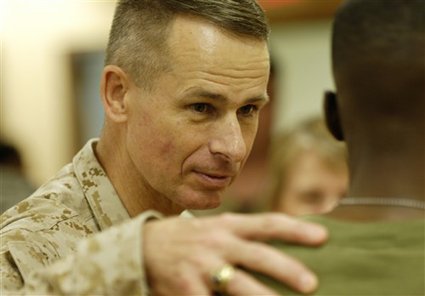
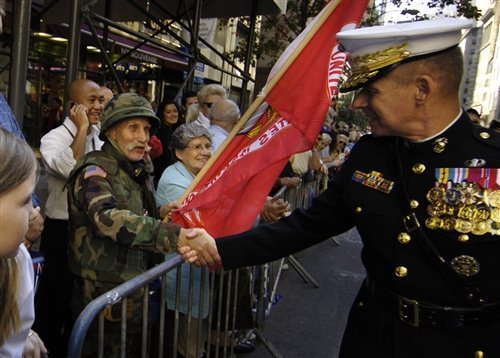
U.S. Marine Gen. Peter Pace, chairman of the Joint Chiefs of Staff, shakes hands with a retired Marine during the Columbus Day Parade along Fifth Avenue in New York City, N.Y., Oct. 9, 2006. Defense Dept. photo by U.S. Air Force Staff Sgt. D. Myles Cullen
.

This about cards left at the Wall…from
Old Sarge’s blog:
At the Vietnam Wall we saw something unbelievable. We noticed three small index cards at the base of the Wall. I knelt down for a closer look and noticed that a 4-star general’s rank was pinned to each card.
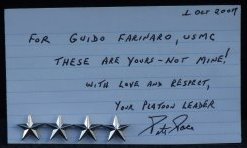
The cards were personally addressed and said something like:
These are Yours – not mine! With Love and Respect, Your Platoon Leader, Pete Pace 1 Oct 2007
The Chairman of the Joint Chiefs had laid down his rank for his boys who died in Nam. Oct 1 was the day he stepped down as Chairman.”
Thank you Old Sarge for the sharing what you saw. Below is more information that I would like to add to this post. – Wild Thing
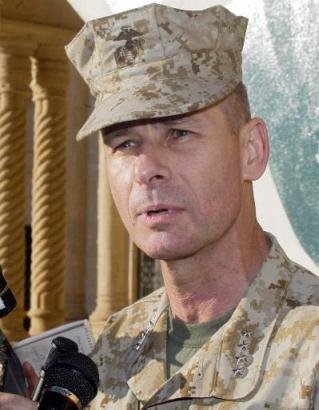
“I find myself at the end of 40-plus years of service hopelessly behind in trying to give back,” he continued. “Because the more I have tried to give, the more that has been given to me. It’s been an incredible cycle that makes me feel humble to have had the opportunity to associate myself with so many wonderful Americans.” General Peter Pace
With Pace it has always been about the Marines who lost their lives while he was their platoon commander, especially Guido, who took a bullet for him.
Pace said he can still remember the names and see the faces of the Marines whom he served with in Vietnam.
An excerpt from the article about his visit to Farinaro’s High School:
The lance corporal’s death also had a profound impact on the young lieutenant. “We were on patrol one day outside Da Nang, and Guido was killed by a sniper,” Pace said. “As I stayed with him, a sense of rage came through me, and as the platoon leader, I started calling an artillery strike on the village where the round had been fired.
“I never want to lose that,” he said. “Under the glass on my desk is a picture of Lance Cpl. Guido Farinaro of Bethpage, N.Y., a 19 year-old corporal killed by a sniper. He was the first Marine I lost in combat. I keep his picture as a reminder that he and Lance Cpl. Chubby Hale, and Lance Cpl. Buddy Travers and Cpl. Mike Witt and Staff Sgt. Willie Williams and all the others died following 2nd Lt. Pace’s orders. I can never repay that.”
(Google the name Guido Farinaro….)
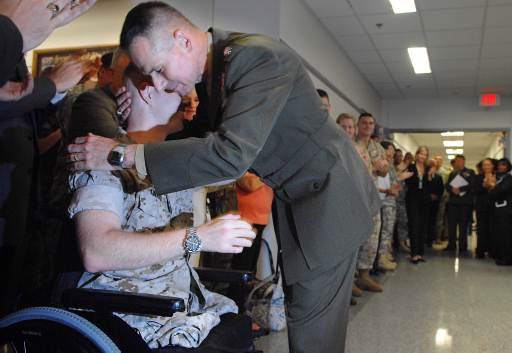
Chairman of the Joint Chiefs of Staff Marine Gen. Peter Pace hugs U.S. Marine 1st Lt. Andrew Kinard at the Pentagon Sept. 27, 2007, following his final press conference as chairman. Pace, who will be retiring Sept. 30, 2007, after more than 40 years of service, will be turning over his position as chairman to U.S. Navy Adm. Mike Mullen Oct. 1, 2007. Kinard, who lost both legs to an improvised explosive device in Iraq, now works at the Pentagon. DoD photo by Staff Sgt. D. Myles Cullen, U.S. Air Force. (Released)
.
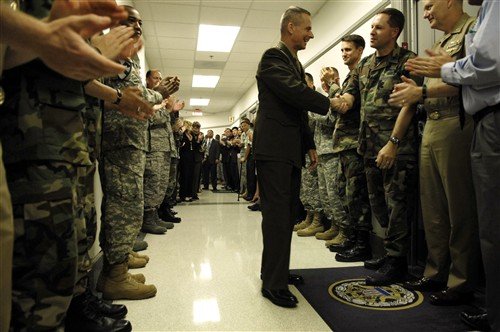
Men and women of the Defense Department line the halls and applaud Chairman of the Joint Chiefs of Staff U.S. Marine Gen. Peter Pace on his last official day at the Pentagon, Sept. 27, 2007. Defense Dept. photo by Cherie A. Thurlby
MINEOLA, N.Y., Sept. 19, 2007 – The reason the chairman of the Joint Chiefs of Staff visited Chaminade High School here was on the wall as he entered the building today: a simple plaque with the names of graduates killed in combat.
Midway down the list of 55 Chaminade graduates killed in combat was the name Guido Farinaro, Class of 1967, killed in Vietnam in 1968.
Marine Gen. Peter Pace came to this Catholic school to honor Lance Corporal Farinaro, the first Marine to die following 2nd Lt. Peter Pace’s orders. The four-star general keeps a picture of the young lance corporal under the glass on his desk in the Pentagon to remind him of the sacrifices young servicemembers make.
Rev. James C. Williams, the president of the school, invited Pace to address the 1,700 students of the all-male school.
“This is selfish on my part to want to come here to Chaminade,” Pace told the students. “I’ve been invited to several Gold Star Masses and have not been able to attend. I did not want to leave active duty without coming to the place from which the single most influential military person in my life graduated.”
During Pace’s talk, the normal restlessness of young men disappeared. You could hear a pin drop when the general told the student body that he wanted to come to the school “to have a chance to look you in the eye and tell you of just one of Chaminade’s incredible graduates.”
Pace wanted the students to know that their lives will make a difference. “I want you to know about one Chaminade graduate whose life made a difference,” Pace said.
Guido Farinaro was a 1967 graduate of the high school, Pace said. “As with all classes in Chaminade, the vast majority went on to college, but Guido joined the Marine Corps,” he said. “When asked why, he said he was born in Italy, raised in the United States and had the opportunity to attend this incredible school and felt the need to pay back the country before he did any more schooling.”
Pace met the young lance corporal in February 1968 during the Tet Offensive in Hue City, Vietnam. Pace was the third leader of the 2nd Platoon, Golf Company, 2nd Battalion, 5th Marines in as many weeks. The platoon was a skeleton, with only 14 Marines left. “Guido was one of them,” Pace said to the assembly. “He and I served together until July 1968, and I came to know Guido as a great young man.”
The lance corporal’s death also had a profound impact on the young lieutenant. “We were on patrol one day outside Da Nang, and Guido was killed by a sniper,” Pace said. “As I stayed with him, a sense of rage came through me, and as the platoon leader, I started calling an artillery strike on the village where the round had been fired.
“My platoon sergeant, who was my age – 21 or 22 — didn’t say anything at all,” Pace said. “He just looked at me. And I knew in the look that he gave me that what I was doing was wrong.”
Pace called off the strike and led the platoon to do what he should have done in the first place – a dismounted sweep of the village. “We found nothing but women and children,” he said. “Had that artillery strike been conducted, I do not know how I could have possibly lived with myself.”
The lesson for Pace was immediate. “Regardless what you do in your life, hold on to your moral compass,” he said. “When you are emotionally least capable of defending yourself is when the biggest challenge will come. If you don’t have an idea of what you will let yourself do and what you will not let yourself do, you may find that you have done something that you would never believe yourself capable of doing.”
He said his epiphany came in combat, but it doesn’t have to. “I learned that day, to think through what was going to be happening each day thereafter, and to think through what I would allow myself to do and not do,” he said.
It could come in a meeting, a test, a temptation, whatever. “If you have thought through who you want to be at the end of each day, you will see that person,” he said. “But, if you have not, you may not like the person you end up being.”
This was one way the lance corporal’s life changed the young officer’s life. Guido Farinaro and all the other Marines who died following his orders made Pace realize what he should do with his life.
Pace never received a scratch during his 13-month tour in Vietnam. Farinaro was standing next to Pace when he was shot by the sniper. Another Marine was walking in front of Pace when another sniper shot and killed that Marine instead of Pace. “Some died, others did not. I still truly do not understand,” he said. “But because of Guido and the others I lost, I determined that I would continue to serve in the Marine Corps until I was no longer needed, and to try to serve in a way that paid respect to their lives.”
Pace said he was determined to give those Marines and servicemembers in his charge what he could not longer give to the men he had lost, and that he built his military career around that idea.
And as he faces the conclusion of his four decades of service when he retires at the end of the month, Pace said that was the last lesson he learned from the young Marines he commanded.
“I’m very calm about what comes next because of what I learned from Guido and Guido’s death, which is we don’t control when we’re going to die. We do control how we live,” he said. “In every disappointment there is a new door of opportunity. Every time in my adult life, when something happened that I wished had not happened, or I did not get what I thought I should get, in retrospect has turned out to be a blessing.
“I am not a volunteer to leave the armed forces of the United States,” he continued. “I still owe Guido and his fellow Marines, and now so many others, more than I can ever repay.”
Pace told the young men that he has no idea what he will do in the future, but that it will include another opportunity to serve. He asked the young men to serve, too.
“I ask you to embrace the path that God lays out for you: do the very best you can on that path and take care of the people near you who look to you for leadership,” he said.

Wild Thing’s comment……..
I cried while doing this post, how could I not. Just to be able to say this man is an American and served in our military, I owe him so much and am so grateful. He is a man of honor and an American Hero. We lost a great leader when we allowed Pete to be pushed overboard.
It is unforgiveable that Bush threw Pace under the bus yet failed to shove the despicable likes of Ike Skelton, Harry Reid, Hillary Clinton, Chuck Schumer, Dick Durbin, Nancy Pelosi, John Murtha, et al, down the chute to the Yuri I. Nosenko Suite of the Vidkin Quisling Wing of the seventh subterranean level of Leavenworth.
Shall the nation now reelect the dual diablos who loathe the military.
God Bless you,General Peter Pace!

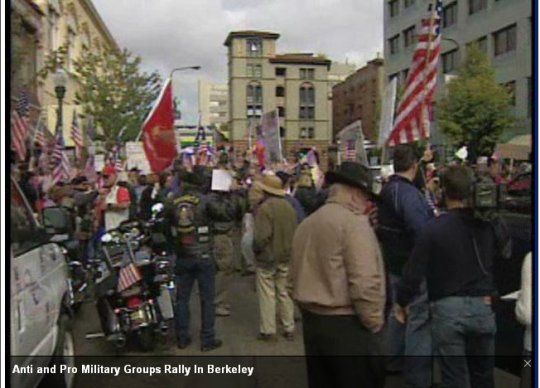
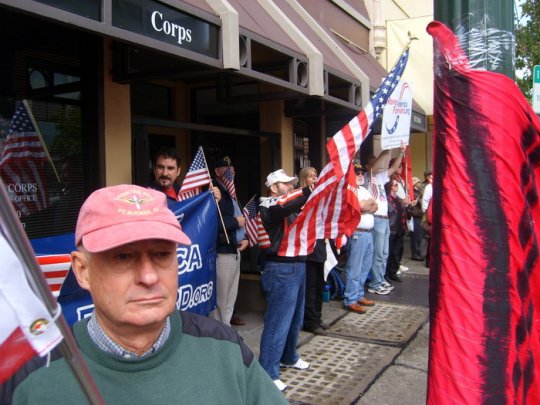
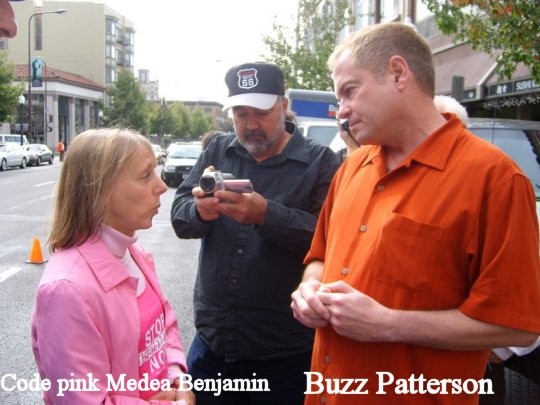
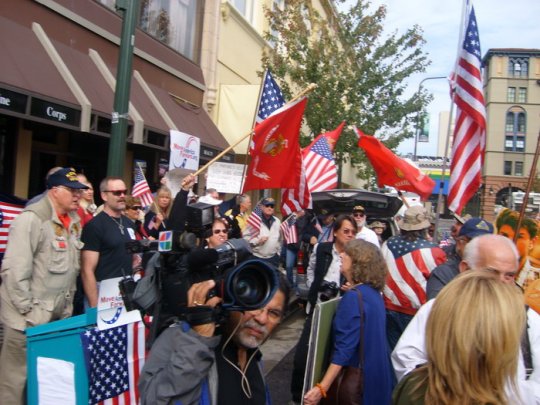
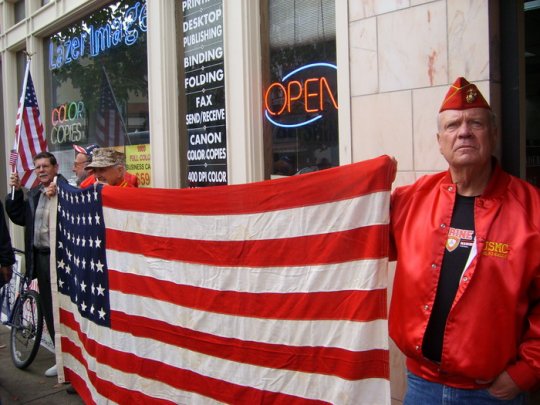
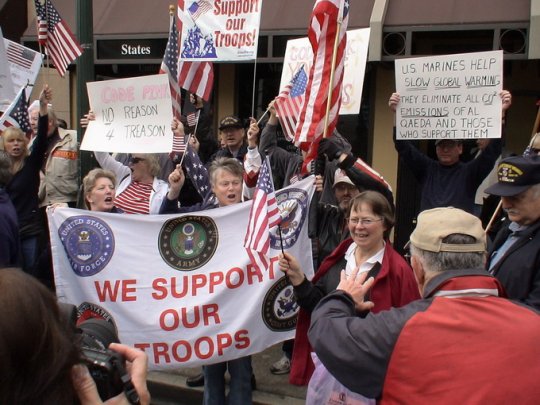
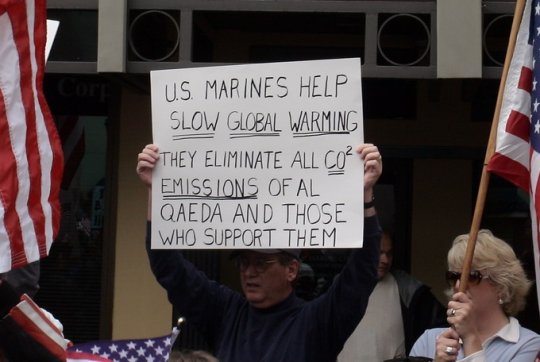


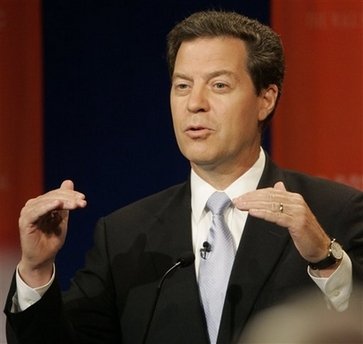

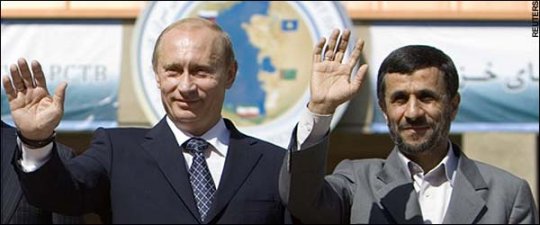
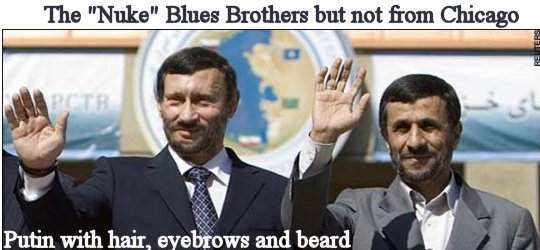











 ….Thank you Tom, gosh I love these videos.
….Thank you Tom, gosh I love these videos.

Recent Comments